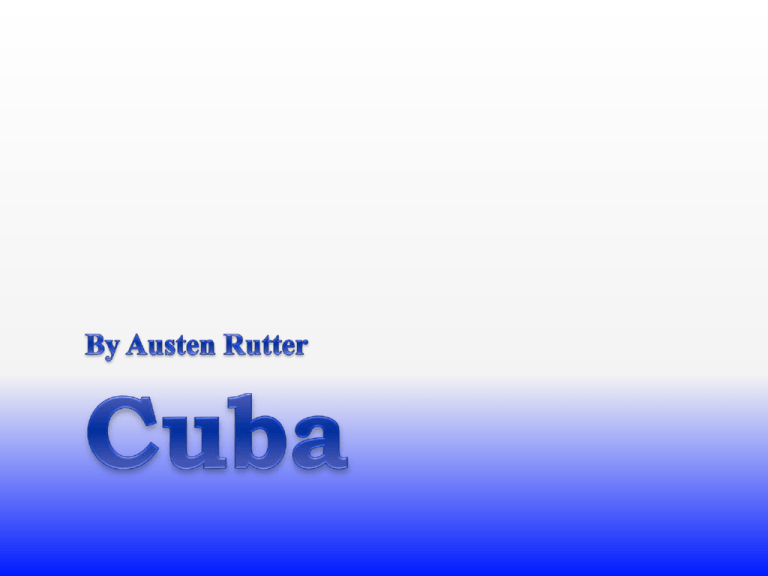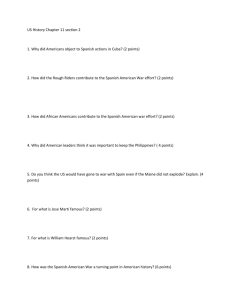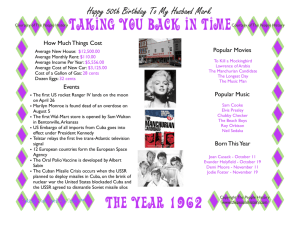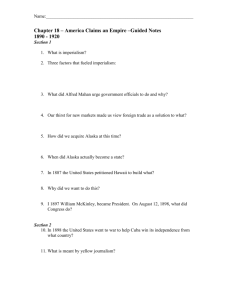Cuba - WorldDomination12
advertisement

Dress Typical Cuban dress during the day is casual and lightweight. Normal dress for Cuba in the evening is formal. Food Many types of food include rice, beans, eggs, tomatoes, lettuce, chicken, beef, pork. The different blends of foods found in Cuba are Spanish, Afro-Caribbean, Portuguese, French, Arabic, and Chinese foods. Music The main music is Cuban jazz and salsa. Customs/Manners In Cuba, beckoning with the palm up is a hostile gesture. They beckon with the palm down. Hand gestures enforce emotions and ideas. Lifestyle Cuban Families tend to live closer to each other. Their housing is mostly apartments or small houses. Their diet is based on food grown locally. Leisure People love to play baseball and boxing, play music, play dominoes, dance, and watch television. Religion 85% of Cubans are Roman Catholic, while the other percent is mixed. Government Structure Cuba’s government structure is a socialist state. Political parties The only political party allowed is Communism. Other parties are illegal. Issues There have been a few skirmishes in politics within the past few decades. Relations with Other Countries Relations with other countries - Trade has increased with Brazil by 31% and reached $642 million. Cuba wants to drill more oil near the Florida Keys and Florida does not want that. Current Leader The current leader of Cuba is Raul Castro Ruz. Flag Blue and white stripes Red with a white star Per Capita Income Cuba’s per capita income is $9,900. G.D.P. Cuba’s gross domestic product is $114,100,000,000. Major Industries sugar, nickel, tobacco, fish, medical products, citrus, coffee Currency The currency used is the pezo, but they also use convertible pesos. Trade Petrolium, food, machinery and equipment, chemicals are imports to Cuba. Exports from Cuba include sugar, nickel, tobacco, fish, medical products, citrus, coffee. Median Age Males tend to live up to around 37 while females usually live up to around 39. Race/Ethnicity Percentages 65% white Spanish descent. 10% African ancestry 25% mixed heritage Education Education is mandatory for kids from ages five to twelve. No child is without schooling. Ninety % is secondary schooling. Birth Rate 9 births/1,000 population Origin Spanish settlers came to Cuba. As the native population died out, slaves from Africa were brought and slavery came to be in 1886. Internal Conflicts There has been some violent political activity in the past. Turning Points Cuba was the last major Spanish colony to gain its independence. Physical Features Cuba has quite a few beaches and mountains. Climate About 77 degrees Fahrenheit in the winter. Around 80-85 degrees Fahrenheit in the summer, though temperatures have reached about 100 degrees. National Boundaries Cuba’s waters are the boundaries. National Parks There is a high mountain peak that rises up to 8,320 ft. It is known as Pico Turquino. Links www.culturegrams.com www.countryreports.org






